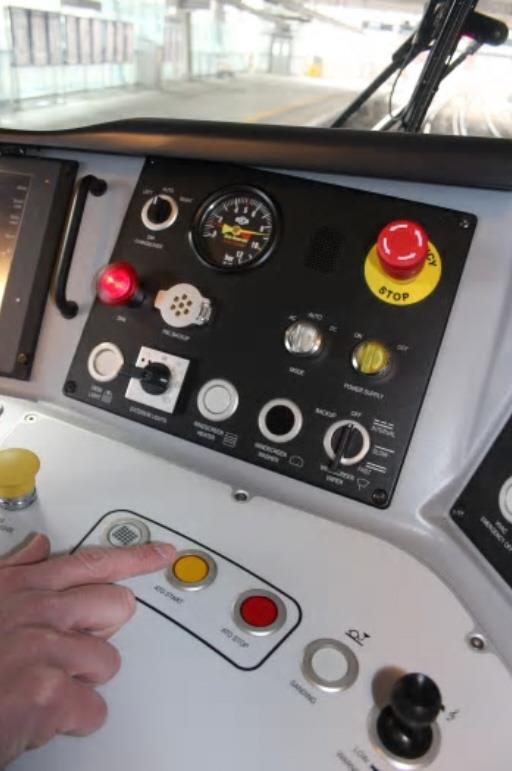Automated operation using a new digital signalling system, developed by Siemens, will allow many more trains to pass through the congested tracks between St Pancras and Blackfriars in central London, giving space for an additional 60,000 passengers to commute at peak hours daily.
Govia Thameslink Railway promised that it would not spell the beginning of the end for drivers, who remain responsible for safety and can take control of the train at any time.
 After almost 18 months of testing, the first commuter train in automatic operation was Monday’s 9.46am Thameslink service from Peterborough to Horsham.
After almost 18 months of testing, the first commuter train in automatic operation was Monday’s 9.46am Thameslink service from Peterborough to Horsham.
Shortly after 11.08am, the driver, Howard Weir, pressed the yellow button in the cab that allowed the train’s computer to do the driving between St Pancras and Blackfriars.
Automation will mean trains every two to three minutes by December 2019, allowing direct services to 80 more stations on 12 routes north and south of the capital. The trains will accelerate and brake with computerised precision to travel as quickly as possible at the shortest possible distance from a train in front.
Weir, who has driven trains for 10 years, said of the automated system: “It’s different – I wouldn’t say aggressive – it’s a little unnerving at first. We drivers err on the side of caution but this knows the limits it can go to.”
The technology is similar to that used on the London Underground’s Victoria line, which retains drivers about 50 years after it was implemented. Thameslink drivers will check the platforms at stations and close the doors while the train is in automatic operation.
Gerry McFadden, the engineering director of Govia Thameslink Railway, said: “Self-drive technology has great potential for the rest of the country’s rail network, particularly on congested routes, and could in future reduce the need for costly infrastructure projects.”
Network Rail said it was a momentous day after five years of work on the £7bn Thameslink programme.





